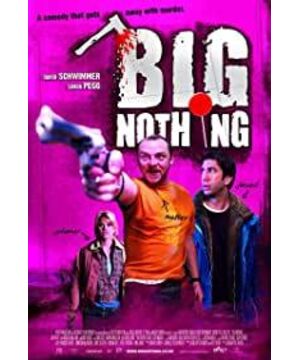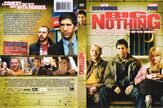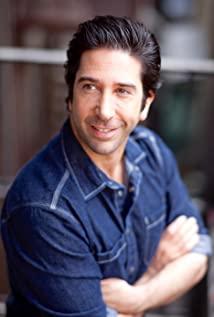First, that widow definitely didn't overhear their conversation and wanted to join them for a dividend. The old detective finally guessed what kind of widow that Josie was, and her usual modus operandi was to kill the victim with alcohol with a high concentration of thallium. So why isn't Garth dead? There's only one reason: Josie planned the blackmail, and she needed a phone company insider to get proof of those blackmails, so Garth was fooled. Garth decides to go with Josie to blackmail the pastor, but they need a scapegoat, an employee who also works for the phone company to top them off, and poor Charlie falls for Garth's trick and joins them. Of course, is Charlie really in the middle of the plot or is he going to plot it? The second analysis later
, has Charlie been kept in the dark the whole time or did he know that Garth was lying to him? When Garth said her daughter's eye disease, Charlie clearly felt something. I don't believe someone with a Ph.D. could be so foolishly fooled.
Third, someone wrote a review saying that the movie starts by saying, "I'm Charlie, and I think I made a mistake." What does that mean? This means that the entire movie is Charlie's recollection, and Charlie is telling the story afterwards as an insider who was involved in the whole event. . .
Fourth, the onset of diabetes will never die immediately because there is no insulin injection in time. In fact, the sudden death of diabetic patients is often caused by low blood sugar rather than high blood sugar. I believe that the method of letting old detectives eat candy is definitely ideal for Cha. The old detective pretended to be dead. Charlie knew that Josie would definitely put him in the car and sink him in the end, but it wouldn't sink for a while, and he knew the old detective wouldn't die. In case of accident or whatever, he threw the gun into the water, but he was surprised that Josie still had a gun. (Additionally, the gun in the movie is actually very confusing, and the gun should not be in Josie's hand.)
Fifth, why is there such a high concentration of thallium in the plot? Josie could choose cyanide or simply describe it as poison in general terms. Why emphasize thallium? Also, why does Charlie get that kind of memory loss or something because of a missing element? There is only one explanation: "The plot requires". But where does the plot need it? The lines are not written, but the development plot should be: the poisoning mechanism of thallium poisoning is actually related to the pathogenic principle of Charlie's disease. Acute poisoning from high concentrations of thallium did not pose a fatal threat to Charlie.
Sixth, in the plot Charlie has been emphasizing the need to check the pulse, and Josie will always forget to check the pulse. Charlie immediately thought of this when he confirmed that the poisoned wine was high in thallium, so he drank half the pot of poisoned wine. Before he died, he deliberately reminded Josie that the money had been transferred, which stimulated Josie's nerves. He knew Josie would end up stuffing him and the old detective into the car and pushing it into the water, and he knew it would take a long time for the car to sink completely.
In fact, there are many interesting details in the whole movie. For example, I really want to know what the name of Garth's fictional daughter means, and so on.
Let's go back and think about Charlie's last words before he "dies", he said that Josie was right, 2 million per person is better than 1 million per person. This is a very unreasonable dialogue.
I think Charlie has already figured out the follow-up result: the old detective used diabetes to play dead, he used thallium poisoning to play dead, and used Josie's mentality to leave the crime scene immediately to escape from the car for himself and the old detective out to create opportunities. After the old detective escaped, Charlie could use the old detective's last betrayal, or the old detective's last stain, to blackmail the old detective. In the end, the old detective had to use the "official statement" to exonerate Charlie. The last bag of 2 million that was repackaged was placed in Charlie's house, and Charlie and his family lived happily together. . . (Let's forget about the killer and the black widow at the end).
Perfect exoneration of Charlie's crime, is there? The priest died at the hands of his wife, the priest's wife's lover died at the hands of Garth, Garth at the hands of the old detective, the priest's wife at the hands of Josie, the shrewd The detective was drunk by Josie and fell to her own death. Josie or the murderer might end up both dead.
But is it all about Charlie? The pastor's incriminating evidence was stolen by Garth, the phone call to the pastor's house was made by Josie, and when the pastor's wife's lover died, Charlie made alibi in the hotel, and the fingerprint on the axe that killed the pastor's wife was Joe's. Akane's, the pistol that killed Garth was thrown into the river by Charlie at the end, and the badge of the shrewd detective was thrown off the bridge by Charlie's wife. The only remaining old detective who knew the truth of the matter had the handle in Charlie's hands. Charlie was not injured in the whole process, that is, there was no bloodstain that would be used as evidence. . . what have you found? Charlie can get out of the whole criminal process perfectly, Charlie will get the two million and live with his wife and children. . .
View more about Big Nothing reviews











